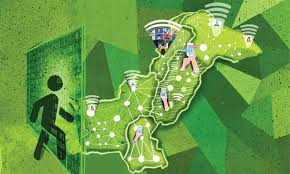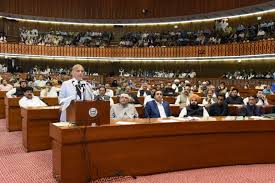
Bridging the Digital Divide
Pakistan is taking significant steps to expand access to digital literacy programs for its rural youth, recognizing the transformative potential of technology in empowering communities. In rural areas, access to education and technology has historically been limited, creating a digital divide that restricts opportunities for personal and economic growth. To address this gap, the government, alongside various non-governmental organizations, has launched initiatives aimed at providing digital skills to young people in remote areas. These programs are designed to equip rural youth with the skills needed to navigate the digital world, enhancing their employability and enabling them to participate in the growing digital economy.
Government Initiatives and Public-Private Partnerships
The Pakistani government has rolled out several key initiatives to promote digital literacy, with a focus on integrating technology into rural education. Through partnerships with tech companies and international organizations, the government is providing affordable access to digital tools, such as computers and the internet, in underserved areas. These efforts are supported by public-private collaborations that aim to build the necessary infrastructure, such as internet connectivity and digital learning centers, in rural regions. By making digital resources more accessible, these programs ensure that rural youth are not left behind in the fast-evolving digital landscape.
Expanding Curriculum and Training Programs
To make digital literacy more accessible, the government is also enhancing the curriculum offered in rural schools and training centers. These programs focus on teaching fundamental digital skills, such as computer usage, coding, online communication, and cybersecurity. In addition to basic computer literacy, specialized courses are being introduced in emerging fields like software development, data analytics, and digital marketing. By providing rural youth with such skills, these initiatives aim to empower them to pursue careers in technology, offering pathways to higher-paying jobs and entrepreneurship opportunities that were previously unavailable to them.
Empowering Women Through Digital Literacy
In many rural communities, women face additional barriers to education and economic participation. Recognizing this, Pakistan’s digital literacy initiatives have a special focus on empowering young women through technology. By offering women equal access to digital education and training, the government seeks to break down the gender barriers that limit women’s involvement in the workforce. Digital literacy programs tailored to rural women are helping them develop skills that can lead to self-employment opportunities, such as online businesses, freelance work, and remote job opportunities, which are increasingly available in the global digital economy.
Long-Term Impact on Rural Development
Expanding digital literacy in rural areas is expected to have a profound long-term impact on rural development in Pakistan. As more young people acquire digital skills, they will be better equipped to engage with global markets, contribute to the local economy, and drive innovation in their communities. Digital literacy also fosters critical thinking, problem-solving, and collaboration—skills that are essential in the modern job market. By preparing rural youth for the future of work, Pakistan aims to reduce rural-urban disparities, creating a more inclusive and sustainable economy. Ultimately, these programs are helping to bridge the digital divide and ensure that all segments of society are prepared to thrive in an increasingly technology-driven world.
Find out how to turn your PUBG skills into earnings with our tutorial

